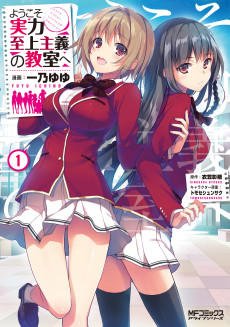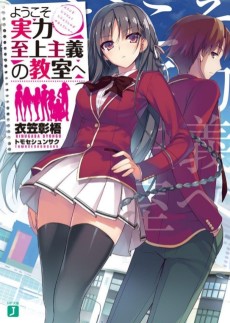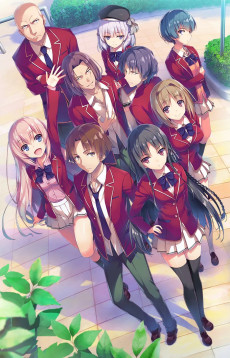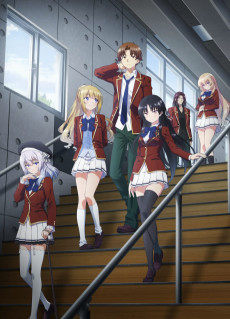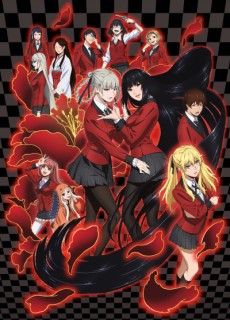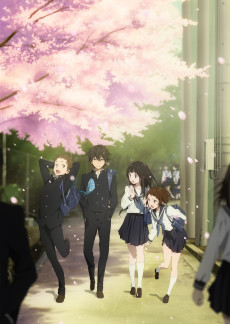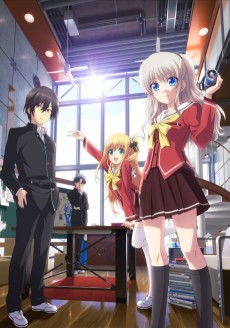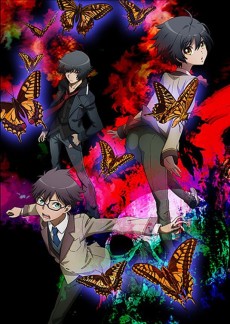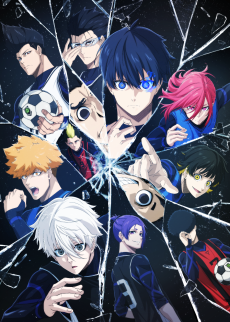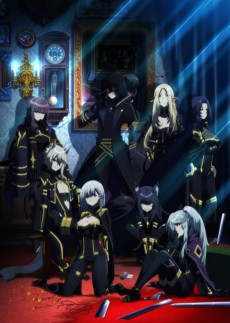YOUKOSO JITSURYOKU SHIJOU SHUGI NO KYOUSHITSU E 2ND SEASON
STATUS
COMPLETE
EPISODES
13
RELEASE
September 26, 2022
LENGTH
24 min
DESCRIPTION
The second season of Youkoso Jitsuryoku Shijou Shugi no Kyoushitsu e.
Tokyo Metropolitan Advanced Nurturing High School seems like a paradise, but in reality, it is an extreme meritocracy. In the class of underachievers, Kiyotaka has begun working with Suzune, who seeks to ascend higher. After a survival test on an uninhabited island, they get to enjoy a luxury liner, but a new class-scrambling test will begin.
(Source: Anime News Network)
CAST
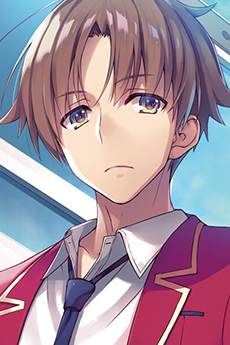
Kiyotaka Ayanokouji
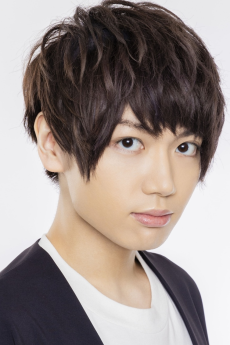
Shouya Chiba
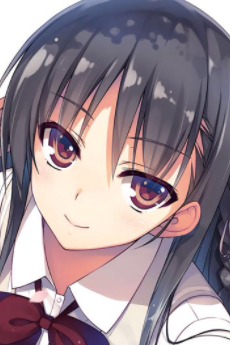
Suzune Horikita
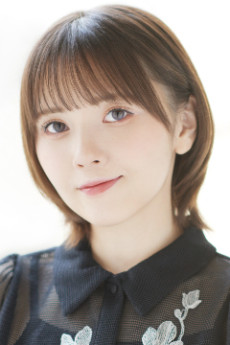
Akari Kitou
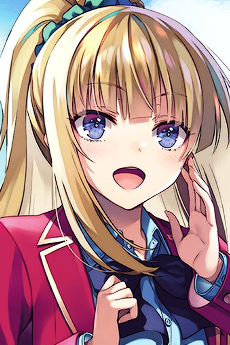
Kei Karuizawa
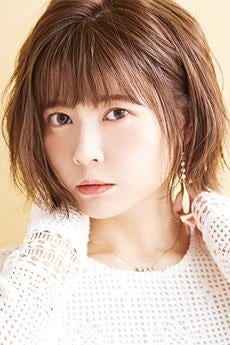
Ayana Taketatsu
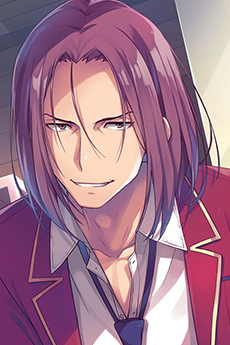
Kakeru Ryuuen
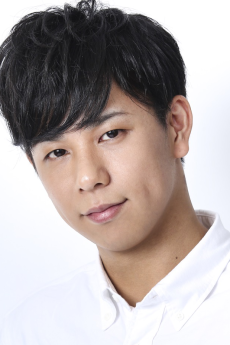
Masaaki Mizunaka
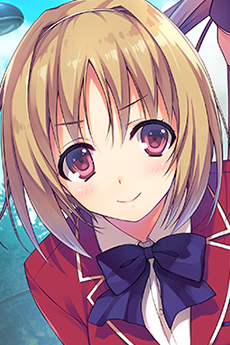
Kikyou Kushida
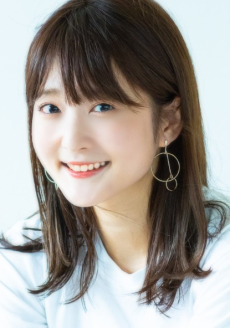
Yurika Kubo
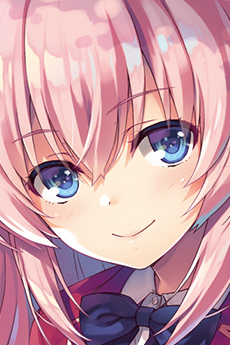
Honami Ichinose
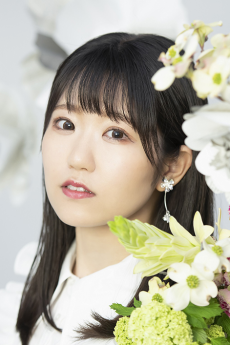
Nao Touyama
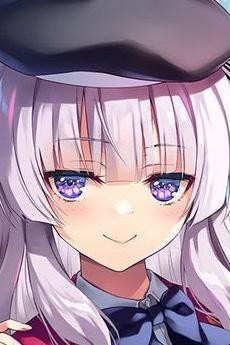
Arisu Sakayanagi
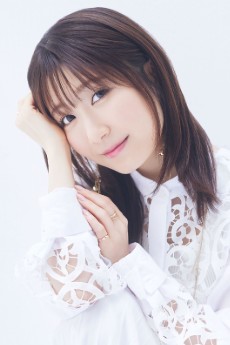
Rina Hidaka
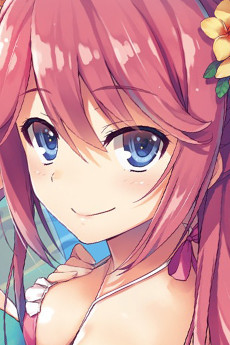
Airi Sakura
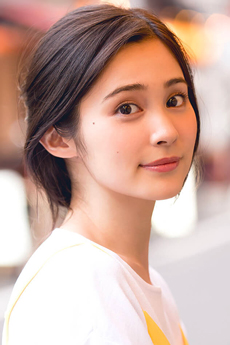
Mao Ichimichi
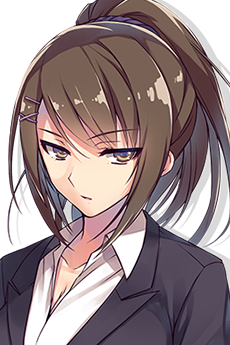
Sae Chabashira
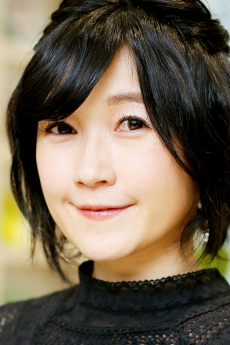
Rina Satou
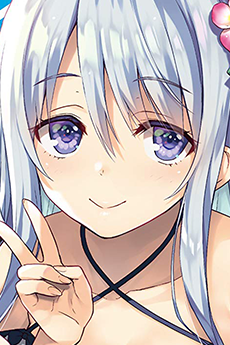
Hiyori Shiina
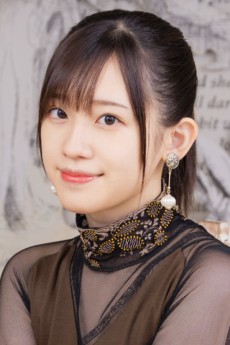
Rie Takahashi
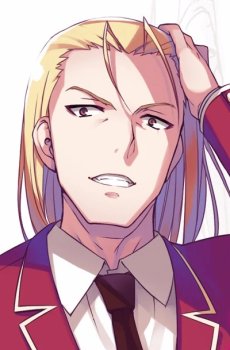
Rokusuke Kouenji
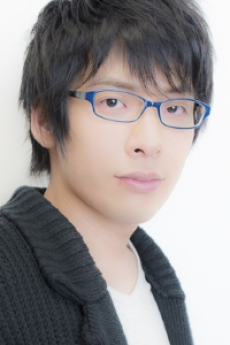
Toshiki Iwasawa
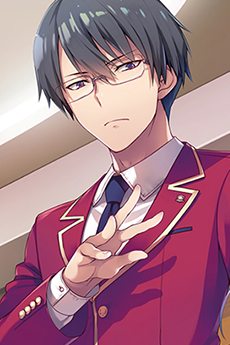
Manabu Horikita
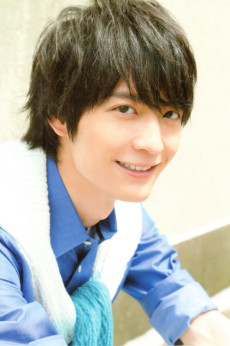
Yuuichirou Umehara
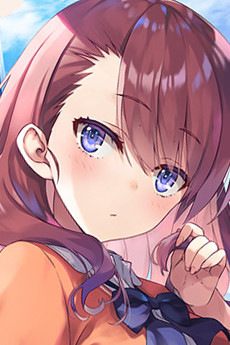
Maya Satou
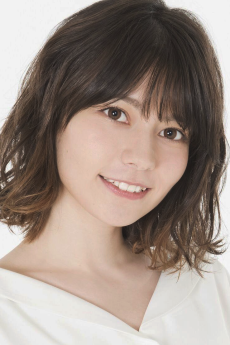
Lynn
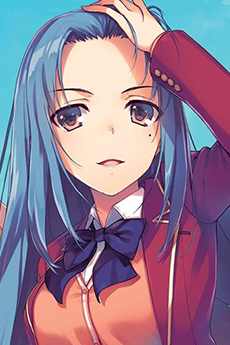
Haruka Hasebe
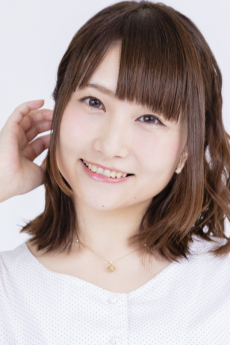
Yuiko Tatsumi
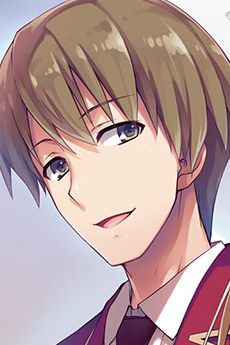
Yousuke Hirata
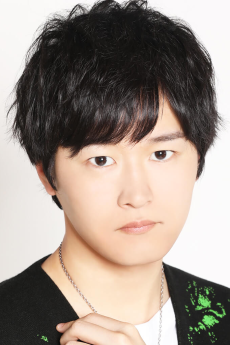
Ryouta Oosaka
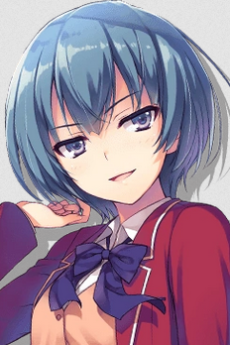
Mio Ibuki
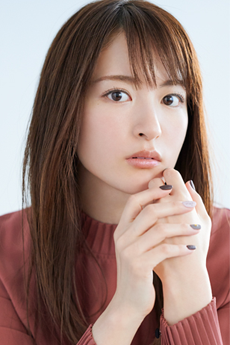
Mikako Komatsu
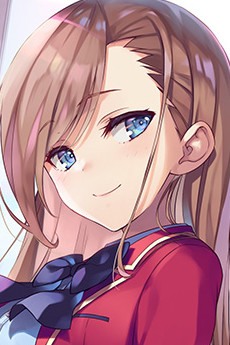
Chiaki Matsushita
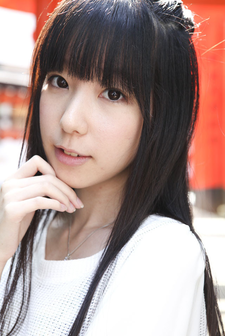
Masumi Tazawa
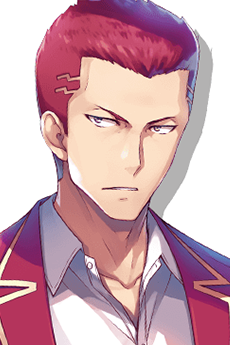
Ken Sudou
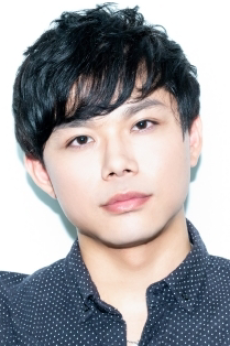
Eiji Takeuchi
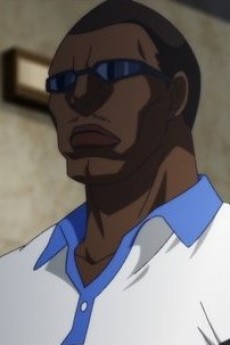
Albert Yamada
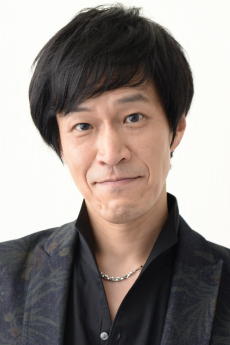
Rikiya Koyama
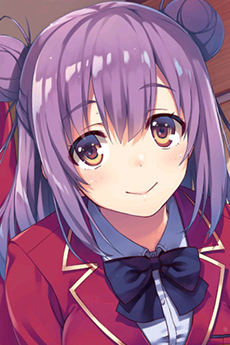
Akane Tachibana
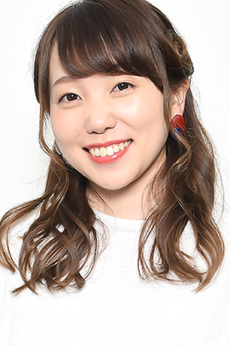
Konomi Kohara
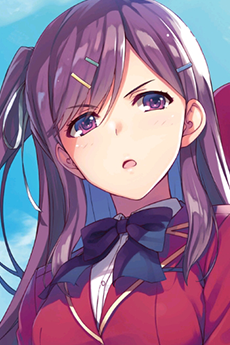
Masumi Kamuro
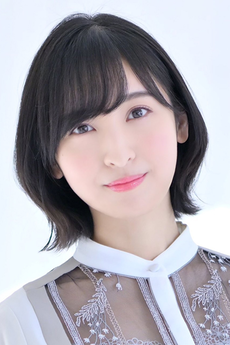
Ayane Sakura
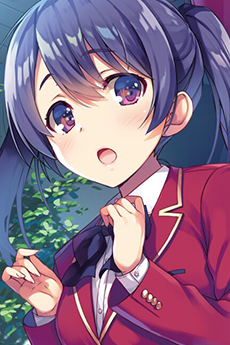
Mei-Yu Wang
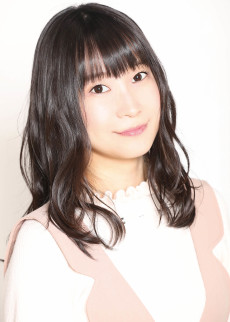
Amisa Sakuragi
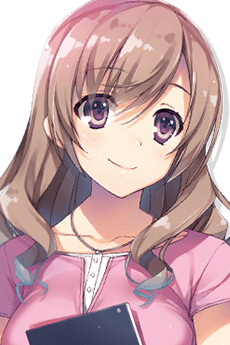
Chie Hoshinomiya
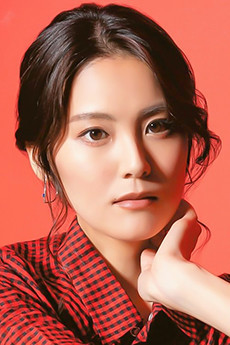
Hisako Kanemoto
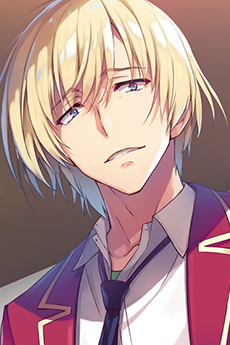
Miyabi Nagumo
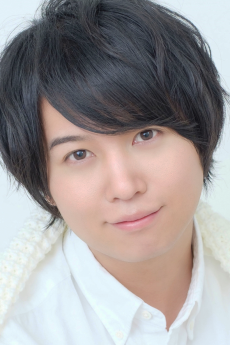
Souma Saitou
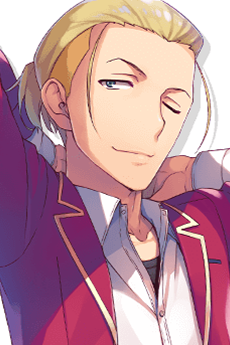
Masayoshi Hashimoto
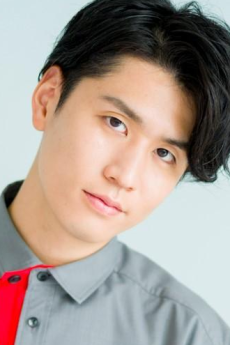
Youhei Azakami
EPISODES
Dubbed
RELATED TO YOUKOSO JITSURYOKU SHIJOU SHUGI NO KYOUSHITSU E 2ND SEASON
REVIEWS

Magenta
35/100“天才を演じてる馬鹿はお前か?(Are you a fool who’s pretending to be a genius?)" ZAQ,「Classroom of the Elite OP2 (Dance in the Game)」Continue on AniListThis review contains spoilers up until Season 2 of Classroom of the Elite
Every single episode of Classroom of the Elite starts with a quote. This way of starting an episode is used ubiquitously enough so that it can be considered sort of a trademark to the anime. I even used a quote from the second OP made in the format of these quotes. But since they are so tied to the identity of the show itself, do these quotes mean anything in terms of their story or themes? If they aren’t, do they at least serve as good food for thought? The answer to both of those questions is a definitive no. Even though it is the first impression of the series one would get, these quotes barely mean anything. These quotes are the equivalent of advice that is inside of a fortune cookie, like "Remember to keep a clear head at difficult times". Many times, they can be vague to the point of meaninglessness, like "The wound is at her heart" and "The material has to be created". This can even go to the point of self-parody with quotes like, "If you make a mistake and do not correct it, this is called a mistake". I really hope this one is just a mistranslation. I predict that the thought process behind choosing these quotes is very similar to how I chose the quote used for the title of the review. I just copy and pasted it because I thought it sounded cool. But what I believe to be the most important quote when it comes to understanding Classroom of the Elite as a whole is the quote at the beginning of Season 2, Episode 7.

Compared to many other quotes, this one actually makes a modicum of sense. However, there is still a deep irony behind it. This quote talks about the dispense of the “necessity of reflection” in favor of taking more convenient solutions, but the necessity of reflection discussed here is something that should be taken into account by the series at large. But when explaining why this is the case, it doesn’t properly fit into the categories provided by the quote. To believe everything and to doubt everything is a convenient solution, but it doesn’t acknowledge that doing both in the wrong places calls for the necessity of reflection just as much. But there is also a third thing, aside from doubt or belief, that calls for a look into the mirror. It is that it is blind. It is blind to its own problems, its own potential, and the type of story it truly wants to be. Classroom of the Elite doesn’t truly know what it is saying, but that doesn’t mean that it isn’t saying anything.

To demystify what the text of Classroom of the Elite says requires deep and thorough analysis. There is no better place to start analyzing than inspecting its world-building. While it may seem like a minor part of the story, a story’s world is like another character that lives alongside the rest of the characters. It is an important artery for the story, and it becomes even more important when its world becomes more fleshed out and intriguing. In theory, Classroom of the Elite should have a world like that.
A Description of the World of Classroom of the Elite (sorta...) The world of Classroom of the Elite is a terrifying dystopia. It takes place in modern-day Japan. A modern-day Japan that is meant to be an exact copy of the one that we live in. The main difference however is that its top school is a boarding school called the Tokyo Metropolitan Advanced Nurturing School. This school, despite being a school considered the best school in all of Japan, is an absolute nightmare. It is based around a hierarchy where its students are seemingly arbitrarily placed within its class structure before they even step into the school. This class structure also leads to a social structure, where those in higher classes look down on lower classes, especially those in the lower class, Class D. By the end of the first week of school, an ultra-competitive mindset is instilled within students of lower classes to get to the top class, Class A. The systems in place at the school coupled with a competitive culture motivate an inner society of students where classism is the norm. However, the cruelest part of this school society is the complete lack of teacher supervision. No matter what event happens in the school, teacher intervention remains rare. This leads to power vacuums, where students can take up the mantle of the class leader. However, their place as head of the class isn’t the same as a true adult teacher. Nothing is stopping these student leaders from being cruel and heartless. And in a school culture where competition is at the top are at the top of most’s minds, this leads to many actions where students bully others to the point of near torture to go unpunished. The students produced by this school will be adults who are worse as people than the middle schoolers that stepped into the school on their very first day.
This is the world of Classroom of the Elite. Well, it kinda is. You see, while most of my description of Classroom of the Elite’s world is technically correct, this isn’t the way that it is framed by the story. Despite this world being almost overtly allegorical for the problems of a hierarchical society, the series is either completely unwilling to explore any of the world’s implications. I wouldn’t go so far as to say that it is completely unaware of these issues since Ryuen’s monologue at the end of Episode 11 of Season 2 is rather spot on in describing what is exactly wrong with the school as a school. He describes the brutal atmosphere the school facilitates very accurately. However, the story doesn’t take the final step in describing these systemic problems as things that need fixing. The final step it takes instead whenever there is a moment where these systemic issues need to be addressed is commonly waived off with an excuse along the lines of, “It prepares the students for society in the real world”. It is also the line of justification Ryuen in his monologue about the school when he says the line, “The hints to realizing that are all around us in our daily lives”.

_okay after rewatching this scene enough times, i do understand what this line of dialogue is supposed to mean, but this line, along with a lot of other dialogue in the show, isn’t nearly as elaborate enough as it should_ And even when it isn’t used to justify the problems with the school system, getting prepared for life in the real world is a concept that is consistently used by the characters. The use of this line of reasoning always goes unchallenged in the plot of the series, meaning that it is likely the takeaway that the audience is meant to have. This comes with a whole host of problems, but let’s just focus on its use as a justification for this universe’s issues. Because as a justification for this universe’s issues, it is awfully bleak. It is effectively giving up on solving any deeply entrenched issue surrounding the happenings of the school, because why would you? If it is a mirror for the struggles of the real world, who cares that students are becoming worse people? They may be worse, but they do function in this image of society presented. Any meaningful action that runs counter to the school system is completely in vain. The hierarchy that the school is based around is most certainly not a meritocracy. However, this series is in the blind belief that it is.
This misunderstanding of what type of hierarchy the school system is extended to what it believes that Class D’s main goal should be. Class D, the point of view class, is looked down upon by those in the higher classes. What specifically puts them on the higher rungs of school life is their higher level of class points. For Class D to prove themselves, to prove their worth to the rest of the school, they need to work up the ranks. However, this is quite an unimaginative indicator of progression. While the class point system is something that is based on definitive numbers, it doesn’t track with what we see. There isn’t a tangible reason why those who are in Class D are at the bottom. They may be flawed people, but they don’t particularly represent the bottom class of society. Why are those in Class C, who so easily give up the school’s prized value of “independence” to follow an authoritarian leader, placed in a class above Class D. I call the main goal of Class D to work up and to become Class A unimaginative because it is the main goal that doesn’t acknowledge the flaws of a clearly broken system.
This type of unimaginative progression extends outside how the protagonist class interacts with the world, but with other classes. Class C’s head, Ryuen, has been portrayed as a primary antagonist since he framed Sudo for assault in the early episodes of Season 1. His brutal outlook on life has led to his iron-fisted rule of Class C, almost like a fascist leader. But the way that he is defeated by Ayanokouji in the Season 2 climax, is through a fight. In a series that hasn’t been focused on hand-to-hand combat at all up to this point, the climax is a fight. The way an antagonist is defeated, at least at the moment, is through the method that he parrots the most. While it may be satisfying to see Ryuen go down, and it may be the best-looking scene in an otherwise below-average-looking show, it is a terrible moment narratively. Ryuen isn’t learning anything from being taken down in this way because, in a sense, it is just further proving his outlook that the most violent one is the one on top. Ryuen’s worldview is just getting bolstered because Ayanokouji just defeats him by being a worse version of him. A fight is an unimaginative way to conclude this storyline because nobody can really develop as a character from it. But aside from what this means for Ryuen’s character, this is also the culmination of a long series of problems surrounding Ayanokouji.

_he is just having a bit of a bad day_ The first scene of Classroom of the Elite Season 2, after the quote, is a scene where Manabu is told of Class D’s success in the Desert Island test. His first thought after hearing of Class D’s group success is, “How will you clear your next challenge, Ayanokouji?” This is quite an interesting response considering that he was told about the class’s success and not one of this individual person, but it makes sense in the broader context of Ayanokouji's place in Class D as well as as a protagonist in the story. Ayanokouji is portrayed as a cold, mysterious genius manipulating everything from the background as if everybody is a pawn. A “mastermind”, you might say. One issue with this is that it significantly undermines the accomplishments of Class D. By framing it in a way that makes it seem like the characters are just living in Ayanokouji’s world, it becomes harder to care to see the efforts of the rest of the class. The universe of the show is so concentrated on his character, that it can be difficult to really see many other main characters’ actions, like Horikita or Kei, as completion of their own. Whenever the series is discussing the upwards trajectory of Class D, I can’t really help but see it talking about the upwards progression of Ayanokouji. Having a protagonist-centered story is completely fine if executed well, but it can’t also have the shades of a world that is more suited for an ensemble-based narrative.
_also this has nothing to with anything, but i thought that the spread your legs scene was pretty funny_ 
_i don’t think that that was the intended emotion i was supposed to feel, but it was still pretty humorous_
The story is so centered on Ayanokouji does more of a disservice to it than anything. And it certainly isn’t helped by the fact that he is a very boring character. His portrayal as an emotionless mastermind is pushed so much that it becomes his only character trait. And in a certain sense, he is just generally good at everything but is holding himself back. He can beat Ryuen at his own fights, and he is good at sports and academics when he wants to. In-depth backstory and any extra emotions are being held back for so long that he is pretty one-dimensional. It isn’t exactly the best fit for a story that takes itself so seriously. As a matter of fact, most of these characters aren’t a good fit for a story that takes itself so seriously. Ryuen and Kushida are so crazy that I am confused as to how they can fit into any type of functioning society, even one as screwed up as the one in this school. Kei and Horikita feel more like real people, but their actions feel less meaningful just because of how centralized the plot is in Ayanokouji. The biggest consequence of all of this, however, of the story’s rickety worldbuilding, along with the one-dimensional characters, is a serious realism and suspension of disbelief.
By constantly repeating that the school prepares its own students for greater society as an excuse to cover up its own problems, it is important to ask, what society is being referred to? The answer should be obvious, 2015. The modern day. But if my impression of modern-day society is correct or if Japan is an entirely different planet, this school would be terrible at preparing its students for modern-day society. The Special Exams alone more resemble games from a death game show compared to something about high school. But by repeating the fact that the school takes place in real society so much, it ends up causing issues. There are many points when it feels like we need to view the events of the series as if they were in a parallel universe where the laws of reality feel flipped among them. The Desert Island game and the VIP game are chief among those points in time. But we have been so conditioned as an audience to view the series through a realistic lens that this can’t work. And this ends up causing an issue with suspension of disbelief. Despite being an animated series where this really shouldn’t be an issue, a serious suspension of disbelief problem emerges. By attempting to ground itself in reality so much, it inadvertently causes the lens to view the show as not one of a fantasy school, but as a real one with real people. And as a real school with real people, it just doesn’t work. Way too many events, especially surrounding the Special Exams, completely fly in the face of what "realistic" is supposed to mean. And the one-dimensional characters, like Ayanokouji, Ryuen, and Kushida, become even worse as characters because you can’t take characters plucked straight from a cartoon seriously in realistic society.
Classroom of the Elite doesn’t want to be an anime about high school. It may have the word “classroom” in its title, but it doesn’t really feel like it wants to be one. I said earlier that the Special Exams resemble more of a game from a death game anime than a high school based anime, but that sentiment is important considering how frequent Special Exams are in the story. Out of the 25 episodes of Classroom of the Elite currently out now, 13 of them take place during a Special Exam. While there are some like the Sports Festival and the Paper Shuffle that are more reminiscent of something you’d see in an actual high school anime, the story more so plays into the “game” aspects of these events than the “school” aspects of it. The series spends so much time on these death game-esque Special Exams that I wonder if it just wants to be a death game. It is doubting its own potential as a high school anime. The school world that it has set up is never going to have its potential tapped, and it is completely unwilling to tap it in any capacity. It is also willing to have massive holes exist in the logic of the world. Its characters are also not at all suited for an anime aiming for any type of realism. And this attempt at realism is also causing massive suspension of disbelief disconnect. So why not just drop any pretense of realism to begin with?
It is obviously enjoying doing the whole death game schtick more than the high school schtick, so why can’t it just go all the way? Are the Special Exams even good as something that is a part of a death game? No, definitely not, they are full of their own holes created by their own overcomplexity. For example, the explanation for the VIP Game took around 4 minutes, only for Kei to say that she didn’t understand it. Lampshading doesn’t make the problem better. But by dropping the veil of a realistic high school anime, it could at least drop the most nagging issue of the series, being its world and its issue of suspension of disbelief. Its more one-dimensional characters would also be more forgivable because of the lack of the limitation of the school setting. It would be a more enjoyable series. Would it be a better series? Probably not. But it would certainly be far less infuriating. What I am basically suggesting is that the series should be more stupid, but a series that knows that it is stupid is better than one that is blind to it. I have lost so many brain cells to this series' own terrible version on realism and high school, that it is fun to fantasize about a version of it where these issues just doesn’t exist.
So if you want to know what I think Classroom of the Elite should’ve been, and probably wants to be instead, here you go. It may be too blind to see it at this point, but if anything, the Classroom of the Elite needs to get rid of the classroom.
Thank you for reading to the end of the review if you did. If you have any criticisms of how this review was made, you are free to message me or comment in this activity to critique what I had to say.
Also, please don’t like or dislike the review without reading it.

Mcsuper
57/100This Show Really Felt Smarter When I Was 14Continue on AniListThe title of this show is very misleading. I thought this school was for “elite students”, but instead, we had 4 classes of bozos participating in Among Us tests and school festivals. I’m not 14 anymore, so this isn’t as deep as I thought Season 1 was. After I finished Season 1 a few years ago, I was convinced that this was the smartest show ever with the best plot twists and the best protagonist in Ayanokouji, but now that I’m older, my views have changed.
That said, as an anime-only for this show, I still found Season 1 much better than Season 2, in basically every way. The story for Season 2 was quite boring, with events that felt very dry. The characters weren’t nearly as good as Season 1, because it seemed like everyone’s IQ except for Ayanokouji declined so much, and I questioned some of their decisions in the story. I’m sure that some of you have seen the bad animation frames posted on MAL and on social media as well, so the production was quite messy at times. The OST was nothing compared to Season 1, which I loved. Nothing felt as well done as Season 1, and save for some cheap enjoyment and satisfaction, this was quite the disappointing season.
My grading criteria: Story: /25 Art: /10 Music: /10 Characters: /20 Enjoyment /15 Thematic Execution /20
STORY: 11.5/25
The story felt quite un-psychological this season. Last season, at least the focus was on studying, and the point system, while this season, the plot material felt very dry, and the point system felt very insignificant. All the activities were built on these overly complex rules that was dumped on us all at once, and that’s never really enjoyable for the viewer. There are better ways to get us to think instead of thinking of rules all the time. It’s really the wrong way of being thought-provoking. The character drama felt very dry as well, as some of the backstories were very surface level. Perhaps this was the product of a rushed series, nothing really felt fleshed out enough to be interesting.
ART: 7/10
A downgrade from Season 1, which would be expected given the amount of episodes that Studio Lerche outsourced to other studios. It got better towards the end though.
MUSIC: 8.5/10
Also a downgrade from Season 1, which had quite the OST. There wasn’t a whole lot of stand out music in this season, other than the OP and ED, which I enjoyed a ton.
CHARACTERS: 8.5/20
The character personalities in this show are rather blank, and with how rushed the show was, they weren’t fleshed out enough. There were a few characters that had rather awkward and out of place interactions this season, such as Sakayanagi and Katsuragi from Class A. They just showed up with not much build up, which was a bit awkward (perhaps a few skipped LN parts?).
The biggest problem however, is that in a school for “elites”, how much the intelligence of the characters dropped this season compared to the last. Horikita for example, being the top of Class D, fell into obvious traps, which was so uncharacteristic of her character. Ryuuen as well, while being an extremely violent person, didn’t seem like the dumbest person out there, but as a villain, he wasn’t that good. It seemed like he knew who the mastermind of Class D was, but then he didn’t know? That was quite disappointing.
Now, I’ll also talk about the fan favourites, Karuizawa and Ayanokouji. Karuizawa in Season 1 felt like a lazy, spoiled girl who mindlessly spent her points on unimportant things, and fell off my radar real early. In this season, she works with Ayanokouji in the hope of defeating other classes. She has a bunch of secrets in her past, which I wished they fleshed out more. The romance between her and Ayanokouji feels somewhat rushed as well, since there isn’t much of a key reason for her to love someone, apart from getting protection.
Ayanokouji is still a good character for the most part, as he creates most of the satisfying moments in the show. His character doesn’t change much, and that’s unfortunately a bit of disappointment. He’s probably the only reason this show is still watchable.
ENJOYMENT: 11/15
With all my criticism, I still enjoyed this show, because the payoffs were quite satisfying, and who doesn’t like seeing Ayanokouji destroying everyone he meets?
THEMATIC EXECUTION: 10.5/20
For whatever this show was trying to do, they execute everything decently, but with the show being rushed the way it was, the psychological factor of the show was not up to par, and felt very surface level. The violence and the romance, while not being the main focus of this season, felt better executed than the mind games to be honest.
OVERALL: 57/100
Just comparatively blander in every single way compared to Season 1. It only felt satisfying to watch Ayanokouji mentally and physically destroy people who opposed him, but in the end, it just felt like everything could have been done much better, if the season had more episodes. Whatever Season 3 brings next year, I hope Studio Lerche learn from their shortcomings from this season.

Nagumo
65/100A disappointing adaptation but great on its ownContinue on AniListIncludes spoilers for the anime and corresponding Light Novel volumes Classroom of The Elite Season 2 is a mess of an adaptation, condensing four volumes into thirteen episodes, turning it into an inconsistent mess, and rushes through the story, ignoring most of the side characters and their growth. Ultimately, only focuses on the core plot and its main cast, making it a watered-down version of the LN. Otherwise, the Anime is at most times enjoyable with its moments and an decent plot, but a lot emptier filled with more plot holes and less developed characters.
The anime is great and enjoyable on its own but just feels like a half-baked version of its LN counterpart. It could have been a lot better, but because of poor budgeting; Only thirteen episodes, and outsourcing stuff, it turns into a somewhat watered-down version.
It is the classic: “Just read the light novel, bro,” and I recommend doing that if you enjoyed this season because the LN is the entire package, you get everything, while the anime is the free trial period. I’d still recommend the anime, but the light novel is miles better than its adaptation and is far ahead with V8 of Y2 coming out soon, so there is a lot of LN content to consume.
This season takes place after the uninhabited island exam, where Ayanokouji beat Ryuuen by working in the shadows, and not revealing his identity and is where the plot takes off with the first season acting as more of a prologue, introducing its character, premise, and narrative and that is why, in my opinion, rushing through volumes four to seven is not optimal, because this is when significant stuff begins happening, character-development, well thought-out exams and crazy plot-twists.
They released the first season five years ago, which to many light novel readers’ dismay was a poor adaptation and experienced a boycott in Japan. It was not bad, but nor was it what the source material was; a somewhat emptier version, and the first three volumes were definitely weaker than what this season is covering, so to me, it was not much of a problem, but it just felt a lot emptier and shallower.
People labeled another season impossible because of the changes the first season made, so it came as a surprise for many that it happened, but you would think; If the previous season experienced a boycott and was poorly received, just maybe, just maybe, there was a universe where they would reflect on their mistakes from the previous season.
So does the adaptation do the source material justice?
No, it really does not. I would label it as a worse adaptation than the previous season. They thought adapting 4 volumes into 13 episodes was a good idea and they skipped V4.5, which develops the characters and adapted scenes from V7.5. COTE volumes are on the thicker side, so mashing everything together in 13 episodes is simply not possible. COTE is pretty dialogue-heavy, considering they constantly try to outwit each other and the insane plot twists, and having a first-person narrator, which makes it harder to adapt the story compared to a third-person narrator, because of having to adapt the monologues/inner thoughts, which is harder, because you cannot adapt everything. The plot has to keep moving, instead of longish monologues.But one of COTE’s selling points is its narrative and Ayanokouji monologues, but in the anime, they are cut down to simple one-liners, and many times, they straight up remove his monologues. This makes his character feel emptier, you don’t hear what he thinks, and that is a problem when COTE is about Ayanokouji. His rejection of his time in the white room, trying to be an average high-school student, so cutting lots of his monologue, removes his inner conflict, his competitiveness, and being a high school student.
They also outsourced to a Vietnamese company, which is an idiotic move when their core competence is their animation department because holy crap do they not know to adapt a Light Novel. The outsourcing just makes it even more of a mess, with constant inconsistencies, some episodes are straight-up trash, because of the rushed source material, but then they sprinkled a bit of terrible animation on top of it, while others are decent to great.
From the narrator's model, the point of no return and climax are the most exciting parts of a story and this applies to the volumes of COTE volumes. You have the introduction of an exam and its beginning. Each one has its point of no return and climax, which are the more exciting scenes, so with their limited budget, they focus on the latter part of the narrator’s model rather than the introduction and presentation. They do this by outsourcing the episodes that cover those phases, before the episode that corresponds to the end of a volume. This creates massive inconsistencies, where characters aren’t introduced properly, and exams likewise. This also applies to the entire arc, where the focus is set on the climax of the hunt between Ryuuen and Ayanokouji, which just creates lesser of a wow factor when they rushed through the build-up.
Characters
One of the beautiful things about COTE is its characters and how their ideologies all differentiate and eventually confront each other in the exams; Ryuuen’s class showcases tyrannical authoritarianism. He seeks to use power, violence, and force to win against his opponents and to seek obedience from his class. Ichinose’s class is a representation of unity, a caring leadership. Katsuragi and Sakayanagi is a civil-warlike situation with one being cautious and the other manipulative. All these go head to head in is fun to watch play out.Ayanokouji; The protagonist of the story, in my eyes possibly the best, but in the anime wise it becomes a distinct case: He is the observant type and lost his sense of ethics and morals after his upbringing in the white room. At heart, he is competitive and will do anything to win, which his upbringing has caused, but throughout the anime, you see a conflict in terms of interest, where he wishes to sit back and relax, enjoying his high-school life. This is because he wants to reject his time in the white room, as the perfect specimen, but when his white room persona awakens, he becomes the competitive type and does everything to win. But the rushing of stuff just makes things a lot emptier and removes a lot of this stuff, making him less of an interesting character and just some edgy guy trying to destroy everyone.
They did get his facial expression right, but not how he views himself in his monologues and how he wants to be portrayed as an ordinary high school student is not shown, which is a consequence of removing most of the monologues.
Horikita; Her stubbornness and pride caused her leadership to be poor at the beginning, but through the exams and multiple setbacks, she improves and develops as a leader, hearing the opinion of others instead of holding onto her own.
At the sports festival, she had to give up her pride in front of Ryuuen to bring Sudou back, so the class had a chance of winning the event. Instead of putting the blame on Sudou for leaving the event midway, she took it upon herself as the leader to bring him back, but they cut out the race where she got into problems with the Class C student, so her entire conversation with Ryuuen felt like she did not want to worry her big brother, which is not the case. It is her finally becoming a better leader.Ryuuen; A great antagonist, but his character is watered down in the anime, where the sports festival was rushed, where more of his scheming was shown and how he acts as a character, and his obsession with finding X, which was shown well at the end of the sports festival, but it never really establishes the hunt to its full extent and feels emptier.
There are also lots of other side-characters who develop through these exams, but the anime cut them all out and only focused on the main-cast.
How the rushing of Source Material affects the finished product
As previously stated, thirteen episodes are not enough to adapt everything, so obvious they need to skip stuff to fit the core of the story, which is how they approach to stuff. This means side-characters get less screen time and hence are less developed, and the same can be said about the build-up or plot twists because of the faster pacing, which makes the scenes less impactful, and to fit everything in, they tend to mix up the orders of scenes, again lessening the plot twists’ impact.Further, the studio obviously knows which scenes from the source material are liked by the audience and can be seen as they put more effort into these episodes and are often more well-paced, but to do so, they rush the build-up to adapt certain scenes properly.
Another thing the rush changes is often how scenes are portrayed. The scenes in the anime are often changed into some melancholy drama or something that makes little to no sense. Take episode five as an example, where Ryuuen schemed against Horikita by having a classmate run into her, making it seem like vice versa happened. They did not even adapt the scene of them running, so zero build-ups and the plot twist happened out of nowhere with Ryuuen obliterating Horikita in their conversation. This was all changed into Horikita, not wanting to be a bother to her brother in the anime, and she simply said okay to Ryuuen.
Another example would be Episode 10, where Ayanokouji exposes Chabashira for lying about having contact with his father. Afterward, he cuts his contacts with Kei. This is his first time experiencing freedom. He was constantly forced to follow orders in the white room, and when Chabashira began blackmailing him. He had to help the class toward Class A. His first time where he could begin being a normal high-school student and as he sat on the bench; he pondered over how he would feel about experiencing snow for the first time. A nice metaphor for freedom, but all this was turned into some melancholy drama between Ayanokouji and Kei, removing the character development and symbolism.
Before the rooftop scene or storage room, I really don’t know why, but Manabu would help Ayanokouji with the aftermath of the fight with Ryuuen. Their deal was that Ayanokouji would get his sister on the student council. This is a complete flip-flop of what Manabu actually wants. He does not want to help his sister, but the school from his successor, Nagumo.
Ayanokouji trying to get Manabu’s sister in the student council is entirely a byproduct of that. Manabu honestly didn’t care if Ayanokouji used Suzune and gave him the thumb-ups to use his sister, and it was Ayanokouji’s plan, not Manabu’s. Further, they never introduced the rivalry between Nagumo and Manabu, their conflicting ideologies, and how Manabu is afraid of what changes Nagumo will make after becoming student council president. They never established this.
Manabu is scared of what the school will become after Nagumo becomes student council president, and how things will change, but they cut this completely out. They did Nagumo dirty and showed they won't focus on side characters because they have to condense everything into thirteen episodes.Point Issue
This is more of a technical issue and by no means does it decrease the enjoyment, but when you have a show that is centered around classes fighting against each other and trying to reach the top of the hierarchy, then for God’s sake show the classes’ points. At no point throughout the entire season do they know what they are doing, they keep changing how points are distributed compared to the Light Novel, and in some cases, it mathematically makes no sense.Take the planet exam as they call it. Firstly, they shot themselves in the foot by decreasing the number of students, because that equals fewer groups. Also, meaning that there cannot be the same amount of change in points between the classes. You might ask, how do they fix this when there are fewer groups? Maybe they would just decrease the number of awarded points and change stuff in another exam to make up for the difference in the previous exam.
So just how did they fix it? They turned it into even more of a mess, changing the rules of the exam, so you could not lose points if you were guessed as the VIP. Now, just what was Ryuuen’s goal in the planet exam? To crush Class A, but that is no longer possible because how the actual fuck can he do that when he cannot make them lose points?
How many points did Class A gain/lose in that exam? They lost two hundred, which is theoretically only possible if four of their students guessed incorrectly, so, in conclusion, they all suddenly turned into idiots. Actually, even that is theoretically not possible, as the number of groups where somebody guessed incorrectly does not match up with the amount of deduced points.
Rating
I know I have ranted a lot about the adaptation not being satisfying, and not doing its source material justice for how great it is, but that does not mean the anime is straight-up bad, it is still good on its own, but it is not the same complex and intriguing story, but more so a fun show with great main-cast, a fun plot and lots of twists.Though the rush causes things to feel forced at times instead of something calculative, Ayanokouji was preparing throughout the entirety of the exam. The twists obviously leave less of an impact, and I understand if it seems pretentious to some, when the anime does everything really straight-forward.
I’d recommend watching the anime. I think it is fun to watch, not an 8-10/10, but a 6-7/10 show. I’d mostly contribute this to the poor adaptation, which does a poor job at presenting stuff, introducing the characters, and rushes through volume after volume at a world-record pace.
Adaptation-wise I’d probably give it a 2/10 because honestly, it was pretty garbage, and that is why I’d heavily recommend the LN if you read Light Novels or you liked the show because it is so much better. You can start from V8 if you want, but lots of things were left out or changed, so they can rush through volumes faster in the next season, so I recommend reading from the beginning.
SIMILAR ANIMES YOU MAY LIKE
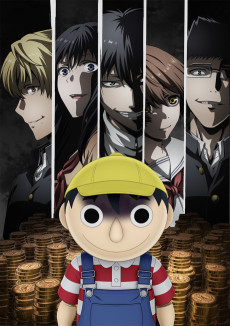 ONA DramaTomodachi Game
ONA DramaTomodachi Game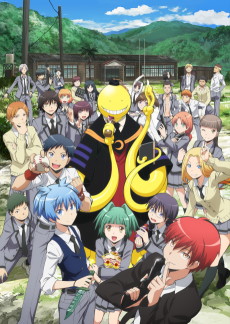 ANIME ActionAnsatsu Kyoushitsu
ANIME ActionAnsatsu Kyoushitsu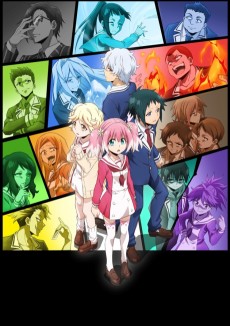 ANIME DramaMunou na Nana
ANIME DramaMunou na Nana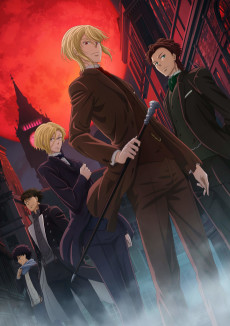 ANIME DramaYuukoku no Moriarty
ANIME DramaYuukoku no Moriarty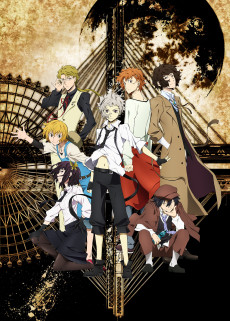 ANIME ActionBungou Stray Dogs
ANIME ActionBungou Stray Dogs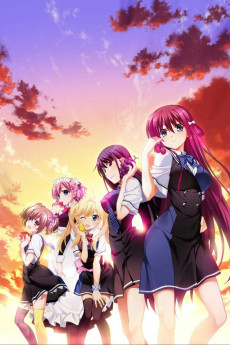 ANIME DramaGrisaia no Kajitsu
ANIME DramaGrisaia no Kajitsu
SCORE
- (3.95/5)
TRAILER
MORE INFO
Ended inSeptember 26, 2022
Main Studio Lerche
Trending Level 10
Favorited by 5,867 Users
Hashtag #YOU_ZITSU #よう実

